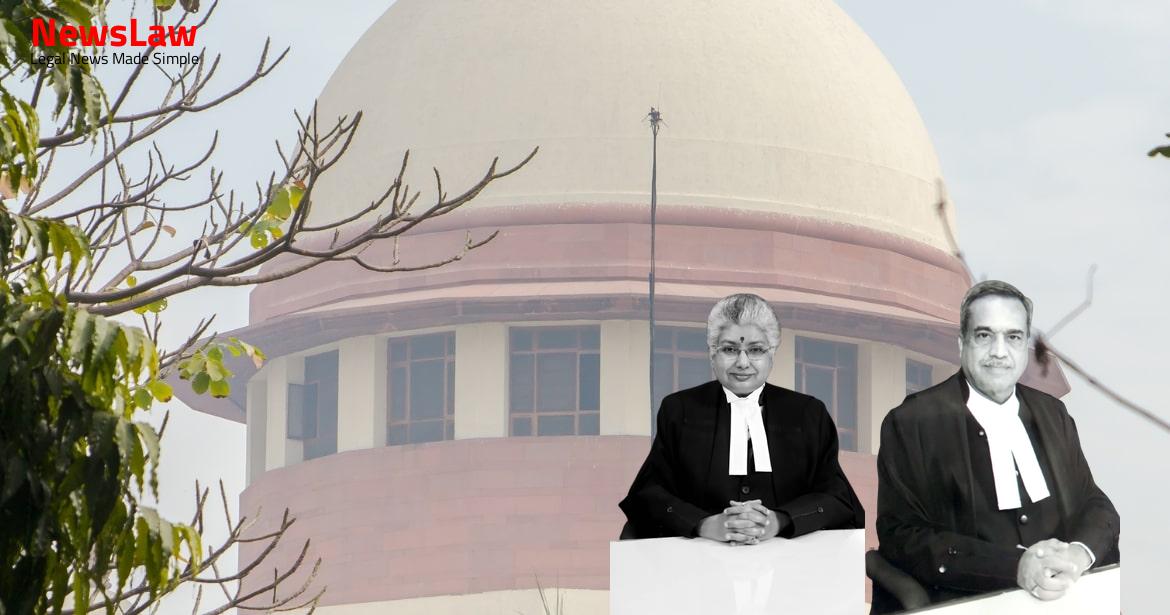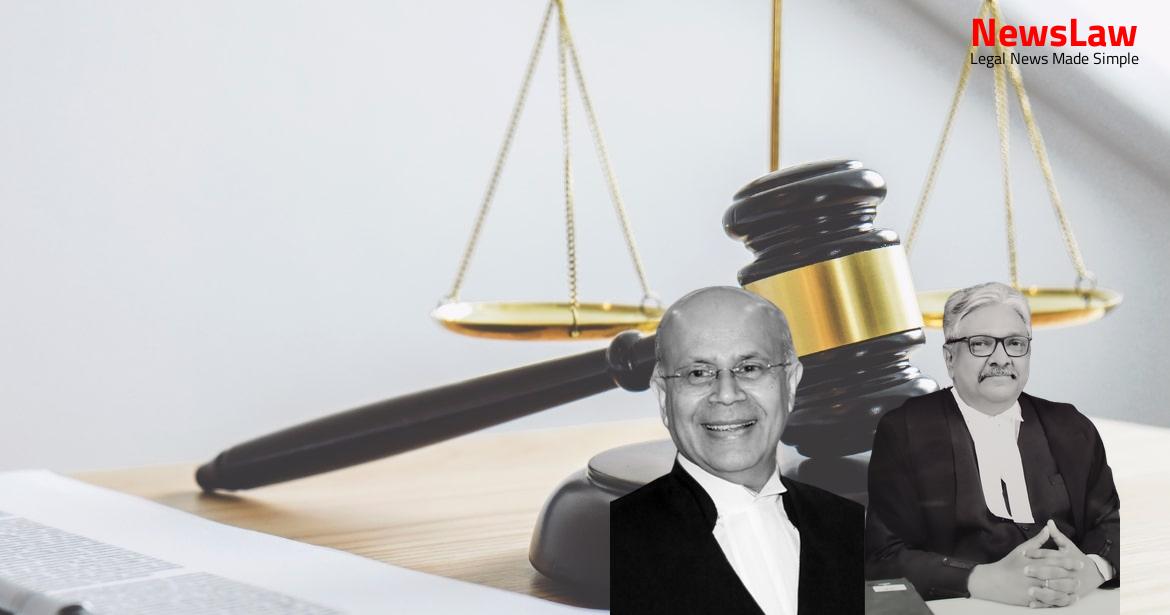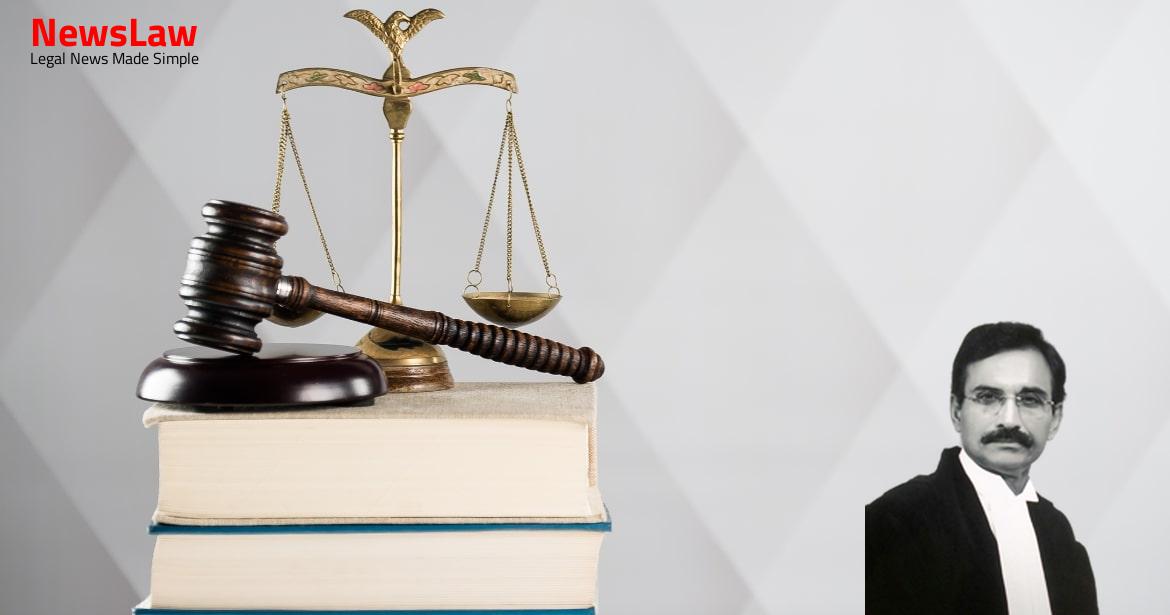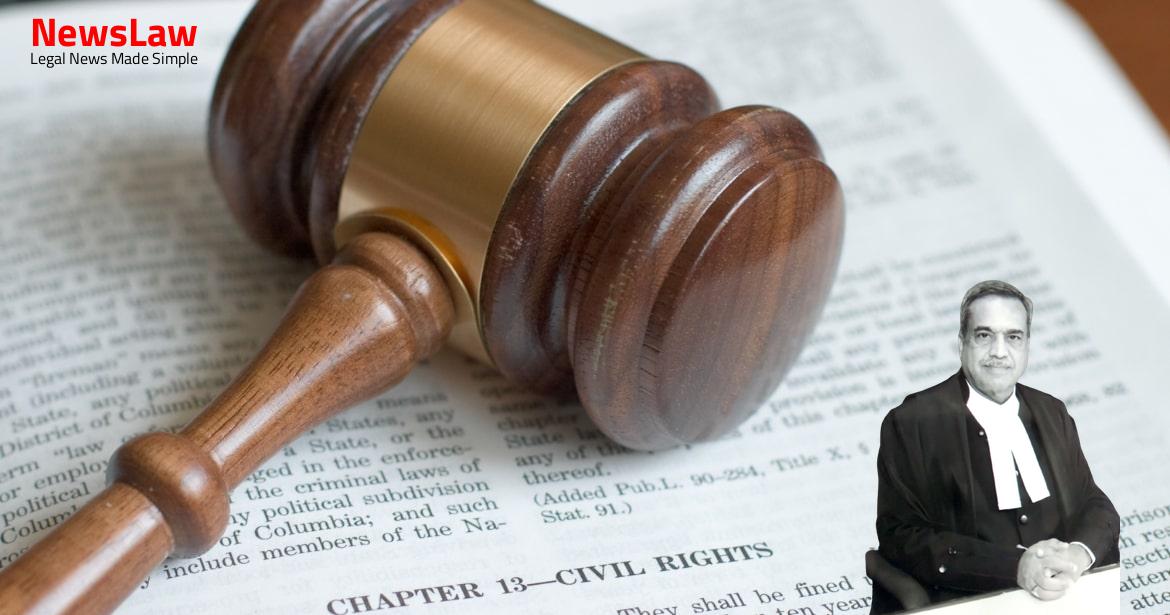In a recent legal case, a significant issue arises concerning the differentiation between a firm and a body corporate in the realm of taxation laws. The court’s analysis delves into the interpretation of the term ‘consulting engineer’ before and after crucial legislative amendments. This blog highlights the nuances of the court’s legal analysis, shedding light on the complexities of statutory interpretation in taxation law.
Facts
- Respondent appealed against Order-in-Original dated 31.01.2007 to CESTAT, New Delhi.
- CESTAT allowed the appeal and set aside the demand of service tax.
- CESTAT held that during the relevant period of dispute, respondent was a body corporate not covered under the definition of Consulting Engineer.
- CESTAT solely relied on the above ground to set aside the demand.
- The Commissioner of Central Excise, Raipur confirmed the demand of service tax amounting to Rs.10,42,71,437/-
- Service tax liability of Rs. 10,42,71,437/- was not paid by the respondent – M/s. Sepco Electric Power Construction Corporation
- A show cause notice was issued demanding the service tax along with interest and imposition of penalty
- The respondent – M/s. Sepco Electric Power Construction Corporation, a Government of China company, failed to obtain Service Tax Registration
- The contract was for providing Design Engineering Services and Project Management & Technical Services to M/s. Bharat Aluminium Co. Ltd.
Also Read: Challenging Legal Presumptions in Negotiable Instrument Cases
Issue
- Scope of definition of “consulting engineer” under Section 65(31) of the Finance Act, 1994 is in question.
- The key inquiry is whether a “body corporate” falls under the definition prior to the 2005 amendment.
Also Read: Legal Analysis of Admission Irregularities in Educational Institutions
Arguments
- The petitioner argues that taxation statutes should be strictly construed to avoid absurdity and mischief.
- Literal interpretation should not ignore legislative intent as stated in Commissioner of Customs (Import), Mumbai v. Dilip Kumar & Co., (2018) 9 SCC 1.
- Strict interpretation, while not literalism, can imply essential inferences that literal rule may not accept.
- The petitioner contends that the term ‘consulting engineer’ before the 2006 amendment should have included only individuals and partnership firms, not ‘body corporates’.
- Subsequent legislation can be looked into to interpret earlier statutory provisions as held in Pappu Sweets and Biscuits v. Commissioner of Trade Tax, U.P, Lucknow (1998) 7 SCC 228 and Gem Granites v. CIT, T.N., (2005) 1 SCC 289.
- The petitioner argues that the 2005 amendment was clarificatory in nature and did not aim at including ‘body corporates’ simpliciter.
- Noscitur a sociis principle should be applied for the most appropriate meaning of ‘engineering firm’.
- High Courts have consistently interpreted ‘consulting engineer’ post the 2006 amendment to exclude ‘body corporates’.
- Common parlance and legal interpretations have historically considered ‘firm’ to mean a partnership firm.
- The petitioner references the decision of M.N. Dastur Ltd. v. Union of India 2006 (4) STR (3) CAL to argue that ‘consulting engineer’ should cover all entities regardless of their legal structure.
- The petitioner further cites explanations in the Explanatory Memorandum to Finance Bill, 2006, and official letters to support the inclusive interpretation of ‘consulting engineer’.
- The respondent cites the case of CIT v. Vatika Township Private Limited where it was observed that in case of ambiguity in a provision, the interpretation favouring the assessee should be preferred.
- Based on the above submission, the respondent prays for the dismissal of the present appeal.
- The learned counsel for both parties have been heard.
Also Read: Legal Analysis: Driver Appointment Dispute
Analysis
- The service tax law (Finance Act, 1994) specifically distinguishes between a firm and a company/body corporate in various provisions.
- Court can rectify any absurdity in interpretation of statutes to align with legislative intent.
- The word ‘firm’ does not encompass a company, as established in legal precedents.
- Interpreting a taxing statute involves understanding the intention of the Legislature and choosing the interpretation that aligns with legislative intent.
- The definition of ‘consulting engineer’ under the Finance Act, 1994 included individuals, firms, and companies.
- In the case of TCS, the argument was made that a company providing services via qualified engineers should not be taxed under the Finance Act.
- The High Court decisions in TCS and M.N. Dastur cases affirmed that both firms and companies can be considered ‘consulting engineers’ under the Finance Act, making them liable for service tax.
- Interpretation of ‘firm’ in the Act must consider context, scheme, and legislative intent.
- The Act aims to tax services provided by consulting engineers, irrespective of whether the provider is an individual, firm, or company.
- High Courts reasoned that the word ‘firm’ in the context of consulting engineers includes various types of business establishments.
- The legislative intention was to tax service providers, including companies offering technical services, advice, or consultancy.
- The decision of the Court upheld the liability of companies to pay service tax for providing consultancy engineering services.
- Interpreting the Act aimed at preventing anomalies and ensuring fair taxation across individuals, firms, and companies offering services.
- High Courts’ decisions in TCS and M.N. Dastur cases align with the legislative intent of the Finance Act, 1994 in taxing consulting engineers, inclusive of companies.
- The Act aims at levying tax on service, without making a presumption as to tax and interpreting words in common and ordinary language.
- The definition of “consulting engineer” includes individuals, proprietorship firms, partnership firms, and associations of persons providing taxable services, without excluding companies.
- There is no rational classification for excluding a company providing taxable services when counterparts like individuals or partnerships are included.
- The scheme of the Act does not differentiate between services provided by individuals/partnerships and those provided by incorporated companies.
- The definition of “firm” used in the context and scheme of the Act includes a company as explained in section 81.
- Post-2005 amendments, the definition of “consulting engineer” specifically includes a “body corporate.”
- The liability to pay tax on services provided falls uniformly on individuals, partnership concerns, and incorporated companies in the case of declared taxable services under the Act.
- Circulars issued by the Ministry of Finance do not contradict statutory provisions defining a consulting engineer.
- In case of doubt, the interpretation favorable to the taxpayer is to be adopted.
- The Legislature had never intended to differentiate between a firm and a company for the purposes of defining consulting engineer.
- Every person liable to pay service tax must make an application for registration to the Superintendent of Central Excise within the prescribed time and manner.
- Service tax is levied at the rate of twelve per cent on the value of taxable services collected as per the prescribed method.
- Payment of service tax must be made by every person providing taxable service in the manner and period specified.
- Certain taxable services notified by the Central Government require payment by the specified person as per the prescribed rate.
- Registration for service tax payment is required for every person liable as per the specified time, manner, and form.
- Furnishing of returns for assessment of tax due on services provided must be done in the prescribed form and manner.
- The original definition of ‘consulting engineer’ encompassed professionally qualified engineers and engineering firms providing services to clients in one or more disciplines of engineering.
- The taxable attribute is the requirement for services to be rendered in a professional capacity.
- The concept of ‘taxable service’ includes any service provided or to be provided as stipulated under the Finance Act, 1994.
- Throughout the relevant provisions, the term ‘person’ is consistently used to refer to individuals liable for service tax payment.
- There is no special treatment or protection for companies under certain statutes.
- Agreement with the decision of the learned single judge being appealed against for different reasons.
- Reference to the decision of the Karnataka High Court in Tata Consultancy Services.
- No distinction under the Ad regarding the provider of a service being an individual, partnership concern, or incorporated company.
- Uniform liability to pay tax on services provided by all entities mentioned above.
- The CESTAT focused solely on the issue of whether ‘body corporate’ was covered within the definition of ‘consulting engineer’ before May 1, 2006.
- Other issues and grounds raised in the Memo of Appeal were not considered by the CESTAT in their judgment and order.
Decision
- The matter is remanded to the CESTAT for a fresh examination and decision on other grounds raised in the Appeal Memo.
- CESTAT is directed to review the appeal in accordance with the law and its own merits, considering the observations and legal principles outlined in the judgment.
- The appeal is allowed to the extent mentioned.
- CESTAT is given a timeframe of three months to complete the review from the date of receipt of the order, with the Revenue required to submit the order within four weeks.
- No costs are to be awarded in this case.
- The impugned judgment and order dated 04.12.2015 passed by the CESTAT in Appeal No ST/136/2007 is quashed and set aside.
Case Title: COMMISSIONER OF CENTRAL EXCISE RAIPUR Vs. M/S SEPCO ELECTRIC POWER CONSTRUCTION CORPORATION (2022 INSC 679)
Case Number: C.A. No.-004928 / 2018



